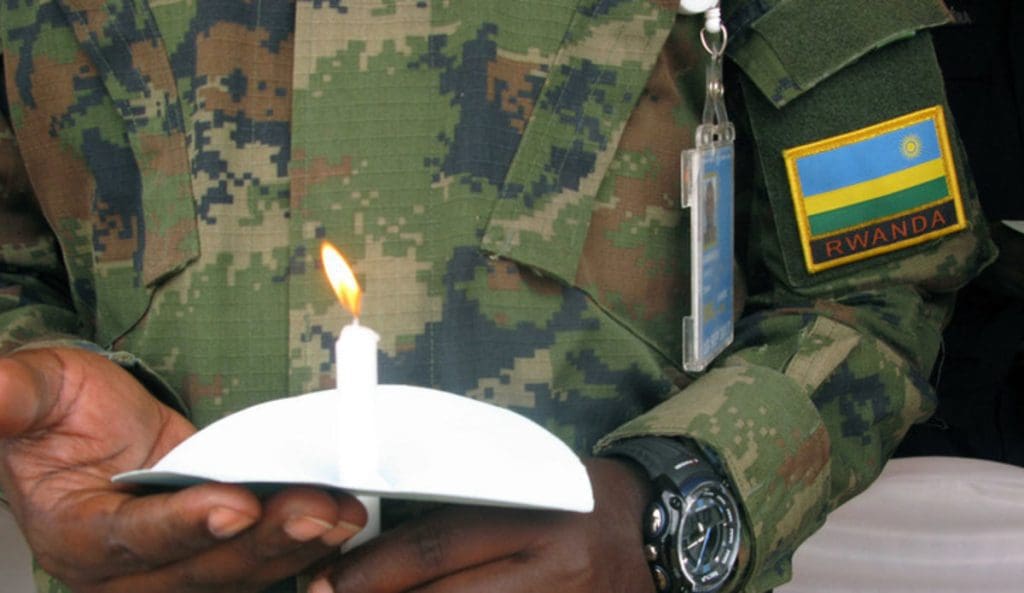More and more African countries are turning to Kigali’s expertise to deal with security crisis situations.
By Abdou Cisse
In terms of conflict resolution on the African continent, Rwanda arouses a curious interest.
Almost everyone rushes to the country of the ‘thousand hills.’
This includes Benin, a coastal country in West Africa regularly blighted by jihadist groups in its north, which is looking for African solutions ot its security challenges.
According to the weekly “Africa Intelligence,” Cotonou and Kigali have reached an agreement to deploy Rwandan forces in northern Benin in October.
The decision, the weekly says, should be formalized by the end of September.
Benin confirms that talks are underway with the Rwandan authorities, but explains that the agreement in question is only for logistical support and does not include the sending of troops.
Whatever the content of the agreement, it is another example of Rwanda’s desire to expand its footprints on the African continent outside of multinational operations.
With a population of just 12 million people, the small East African country has proven resilient after the 1994 genocide that killed an estimated one million people, the majority of them ethnic Tutsis, and has (re)built a professional army from the backbone of the Rwandan Patriotic Army (RPA), the armed wing of the Rwandan Patriotic Front (RPF), under the leadership of current President Paul Kagame.
Rwandan forces have been participating in United Nations peacekeeping missions since 2005.
To date, 6,000 Rwandan soldiers have been sent to multilateral operations, notably in Mali and Darfur.
“Rwanda is the fifth largest contributor to UN missions in the world and the second largest continental contributor behind Ethiopia,” said Italian researcher Federico Donelli in a study for the French Institute of International Relations (IFRI) entitled “Rwanda’s Military Diplomacy: Kigali’s political use of military means to increase its prestige and influence in Africa and beyond.”
Rwanda rescuing African countries
It was in mid-2020 that “Kigali’s approach to deploying its defense forces and managing conflicts showed significant signs of change,” Donelli says.
The strategy was tested in the Central African Republic, where Faustin Archange Touadera, elected president in 2016, was able to rely on Rwandan forces and the controversial Russian private company Wagner to halt the advance of the troops of deposed former president François Bozizé and recapture major cities like Bambari. Moreover, since February, Valentine Rugwabiza of Rwanda has been the representative of the United Nations Secretary General in CAR.
She replaced the Senegalese Mankeur Ndiaye.
With the success of this “pilot phase,” Kigali is convinced of the effectiveness of its solution, which it is now exporting.
“Rwanda, already engaged in Mozambique against a group affiliated with the Islamic State, has shown military capabilities in the fight against terrorism. The soldiers making up its army appear in this theater as a disciplined, trained troop with modern equipment,” Amanar Advisor, a strategic intelligence and monitoring firm based in Strasbourg, France, observed in an interview with APA.
In less than a year, the Rwandan military has taken over towns in northern Mozambique that were under the yoke of the group “Ahlu sunna wal jama’a” (followers of the prophetic tradition, in Arabic) whose members are also known as Shababs although they have nothing to do with their namesakes in Somalia affiliated to Al Qaeda.
Under the spell, Mali, also facing a jihadist insurgency since 2012, has moved closer to Rwanda.
The goal: to strengthen the capabilities of its army for greater efficiency in the defense of its territory.
In doing so, “Rwanda seeks to promote its military solution to security problems as an alternative to the architecture promoted by regional organizations,” Donelli maintains.
What will Rwanda have in return?
In the case of Benin, Amanar Advisor, specializing in strategic advice on the sahel, believes that “Rwanda wants to embody the perennial African solution to crisis management and relegate the G5 Sahel-type mechanisms to the status of a useless and costly gadget.
Kagame’s country, “through this deployment, is also positioning itself as a major partner of France, whose support in Benin is strategic, particularly for securing post-Barkhane logistics,” Amanar Advisor went on.
Amanar Advisor is convinced that “Rwanda, which is in the midst of an economic boom, intends to expand its zone of influence and establish its position as a regional leader.
Ultimately, according to this firm, “Paul Kagame wants to place Rwanda among the richest countries in Africa. And this will also involve the establishment of the Rwandan private sector in states experiencing a security crisis.
Amanar Advisor is adamant that “Rwanda, which is in the midst of an economic boom, intends to expand its area of influence and establish its position as a regional leader. In addition, President Paul Kagame is gaining stature by embodying the renewal of the African leadership through a major change in vision and energy deployed in this purpose.”
Ultimately, according to this firm, “Paul Kagame wants to place Rwanda among the richest countries in Africa.
And this will also involve the establishment of the Rwandan private sector in states experiencing a security crisis.
AC/id/fss/as/APA


